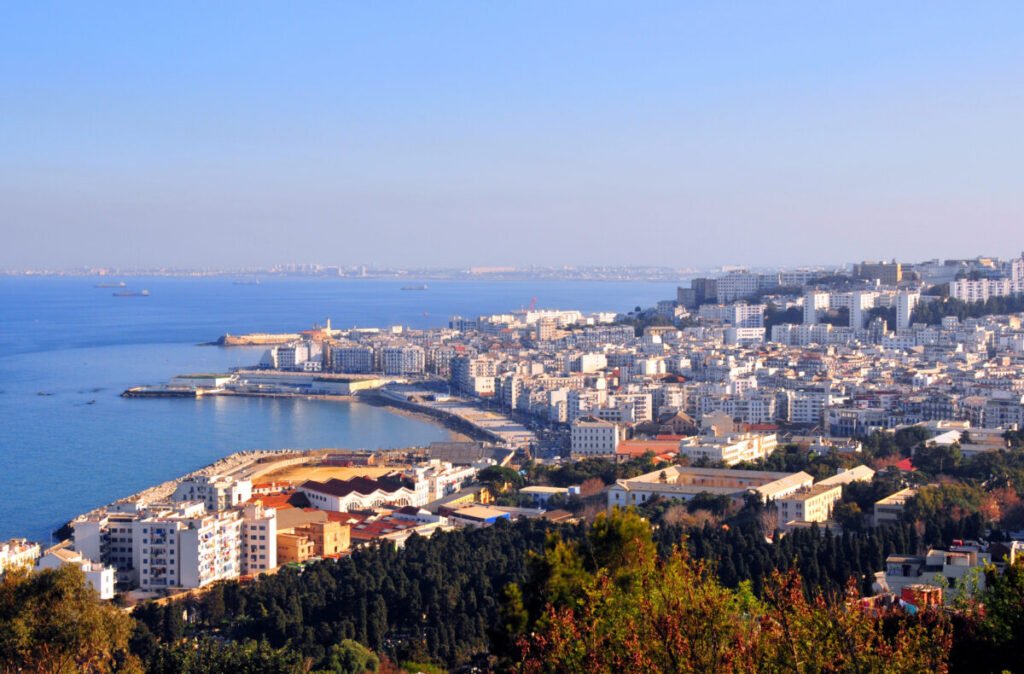Algeria is making strides in the fintech sector, aligning its economic strategies with the ambitious National Vision 2030 to diversify from its traditional oil-dominated economy and foster a digital financial ecosystem.
Capital and financial hub: Algiers
Key economic development strategy: Algeria’s National Vision 2030
Economic, financial services and fintech overview:
Algeria, despite facing its own challenges, is rich in natural resources like oil and natural gas, which significantly contribute to its economy. The economy has largely been state-controlled, and although Algeria is not a member of the World Trade Organisation (WTO), it participates in regional groups such as the Arab League and the Africa Continental Free Trade Agreement (AfCFTA).
Apart from the Bank of Algeria, the government lacks a specific framework focused on monitoring and supporting fintech startups. Financial inclusion is notably low in Algeria for both individuals and micro, small, and medium enterprises (MSMEs). MSMEs in particular have the lowest level of financial inclusion in the Middle East and North Africa region. Additionally, a significant portion of the population lacks access to bank accounts, with only a small percentage utilising digital payment methods.
Despite lagging behind other African nations like Tunisia and Morocco in the startup and tech sectors, Algeria has seen notable developments. Recently, the government allowed non-banks to provide payment services, a privilege previously exclusive to banks. This legislative change also paves the way for investment banks and digital banks to operate in the country.
Key players
In efforts to digitalise the banking system, two public entities, the GIE monétique and SATIM, alongside initiatives like the Algeria Startup Challenge launched by Nesrine Ziad, have played pivotal roles. The Algeria Poste, similar to Morocco’s counterpart, offers various fintech services, contributing significantly to financial inclusion. To note, Algeria has a relatively high mobile and internet subscription rate, which in 2021 was at least 37 million mobile internet subscribers and over 3.5 million fixed-broadband Internet subscribers.
Algeria boasts a relatively high rate of mobile and internet subscriptions, with millions of subscribers in both categories. Fintech startups like Banxy (mobile-based bank), DFA (open banking platform), ESREF Pay (digital wallet), and Yassir (a superapp with banking features) are emerging in the Algerian fintech landscape, with Yassir becoming the country’s most funded startup as of 2023.
Breakdown of sector:
Fintechs in Algeria cover a wide range of subsectors, but are mainly focused around payments.
Key organisations:
- Algerian Startup Fund – Sector-agnostic, pre-seed and seed stage focused investment fund offering tickets starting at $30,000 and going up to $145,000, Algerian Startup Fund also manages public funds allowing investments of up to $1million dollars on startups on later stages.
- Bank of Algeria (BOA) – Central Bank of AlgeriaSecurities and Investments Organisation and Monitoring Commission (COSOB) – To organise and to oversee the securities market
- Association Professionnelle des Banques et des Etablissements Financiers (ABEF) – Association for Banks and Financial Institutions in Algeria
- Ministry of Post and Telecommunications – Mainly regulations telecommunications in Algeria including Algerie Poste
Timeline of key fintech highlights:
Key statistics of the country: 
This article is an excerpt from The Fintech Times: Middle East and Africa (MEA) 2024 Report

